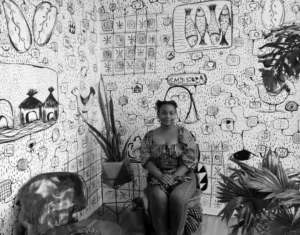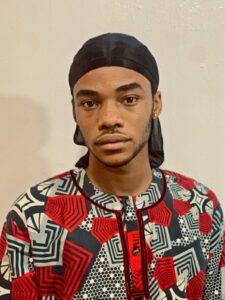In 2009, the journalist Socrates Mbamalu, the business strategist Ifedolapo Ogunjubee, and the legal practitioner Morisola Alaba were undergraduates at Obafemi Awolowo University, Ile-Ife. Mbamalu and Ogunjubee, close friends, were studying linguistics. Alaba, a friend of Ifedolapo’s, was a law student. The conversations they had as friends would present them a mission more than a decade later.
“Sometime this year, Ife and I were discussing how we wanted to see a better society,” Mbamalu tells Open Country. “Ife told Morisola what we wanted to do. Morisola, who has vast experience and passion, joined and we started laying the foundation blocks for the organisation.”
The trio’s idea for a better society is Kathēkon. It will “provide grants to organisations seeking to transform society through evidence-driven investments in education, social welfare, and civil society.” The word “Kathēkon” is a Greek concept originating from Zeno of Citium, the founder of Stoicism. Stoicism espouses the importance of humans being virtuous, acting accordingly, and doing what is right for oneself and, most importantly, the society. “Kathēkon” loosely translates to “appropriate behaviour” or “convenient action for nature.”
The new organisation Kathēkon aims to improve the quality of education available to children from low-income families, and to fund free schools focused on bridging that gap. It is committed to providing drinkable water, daily meals, and reliable housing to underserved communities, through the assistance of credible leaders and organisations. It wants to “rebrand and reenergize civil society.” It recognizes the challenges civil society groups face in Nigeria—oppression from the government, limited funding opportunities—and is dedicated to assisting them with funding to make their work smoother. But when necessary, they will “cut funds where projects do not produce intended results.”
The first beneficiary is Felicia Divine Vision School, Ilesha, Osun State.
In a newsletter, Mbamalu states that Kathēkon became imperative due to the refusal of the Nigerian government to respond favourably to the calls and cries of the citizenry. “We are faced with a new wave of oppression,” he writes. “Civil liberties and economic progress have been halted and, in many cases, regressed. Resistance is no longer a responsibility, it is a duty.”
Kathēkon’s source of funding is from well-meaning individuals and organisations that, like them, are committed to seeing change. “These partners are the ones who commit their resources and entrust us with the responsibility of identifying areas where urgent change, for both future and short-term goals, is achievable,” Mbamalu tells Open Country.
Kathēkon hopes to help enable a Nigerian society that wouldn’t need its existence—one where Nigerians are not held back from achieving their goals due to poor education, ill health, or cruel government policies.
In the newsletter, Mbamalu writes: “We are eager to also change mindsets. We are interested, deeply, in the grit that change demands.”




One Response